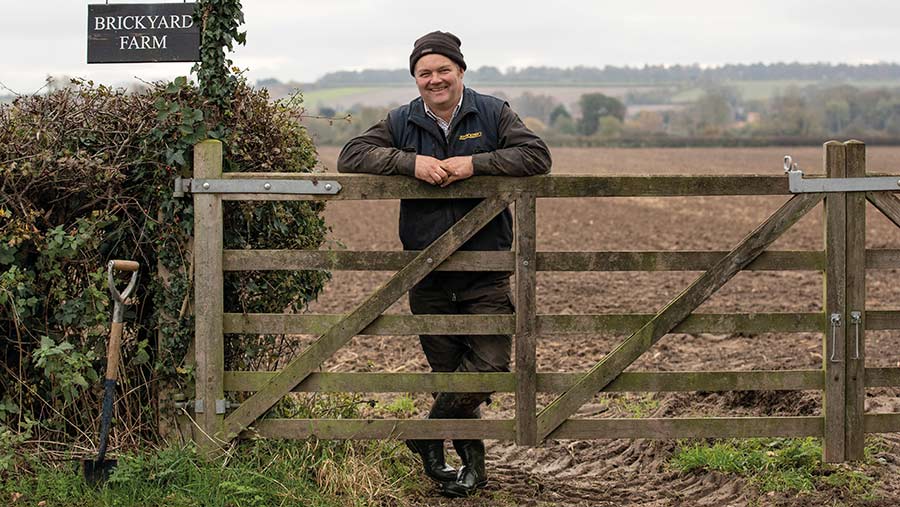Farmer Focus: Worries over dirty beet and loss of spud fungicide
 Andrew Wilson © Angela Waites Photography
Andrew Wilson © Angela Waites Photography The beet we lifted in mid-December didn’t look exceptionally dirty, but British Sugar’s muck-o-meter certainly thought it was.
Being 97 miles from the factory means that 18% dirt alongside 15% sugar gets expensive.
Fortunately, we have a good cleaner from our days as a haulier, so we put the beet over it twice and blasted it with water the second time.
See also: Farmer Focus: Is the SFI encouraging farmers to not farm?
We still have two-thirds of our crop to lift, but with frozen ground, we must be patient.
We immediately drilled the two lifted fields with wheat, but the lower lying area suffered severe saturation, with 90% of the field now needing to be redrilled.
I know I’m not alone with such problems – I share your pain.
I was thinking of a positive spin for my column, but the 47% germination and “unacceptable” vigour of our farm-saved spring barley seed certainly isn’t it.
We have grown spring wheat four times in the past 10 years. All of them were poor crops, so that isn’t an alternative to be considered.
We have five winter wheat varieties represented in our seed store and, with four of them apparently OK to drill into February, at present that looks a better option.
The gulf between feed barley at £158/t and spring barley seed at £770/t isn’t inspiring.
Losing the vital multisite fungicide mancozeb will be a serious knock for disease control in potatoes.
The consequential effect of such a ban also means the demise of important formulations from our armoury – not least those using cymoxinal or dimethomorph with mancozeb.
I do wonder what has suddenly changed to lead to the ban of a product that has been around for more than three-quarters of a century. What will be next?
As my focus turns towards the 2024 potato crop, I can’t help feeling the new season’s contract prices are already out of date.
Some customers offerings remain lacklustre, particularly from those that slice potatoes very thinly.
Higher seed prices and a smaller, more expensive fungicide armoury, a very wet winter, ever rising interest rates and a fertiliser price roulette wheel do not boost one’s optimism much.


